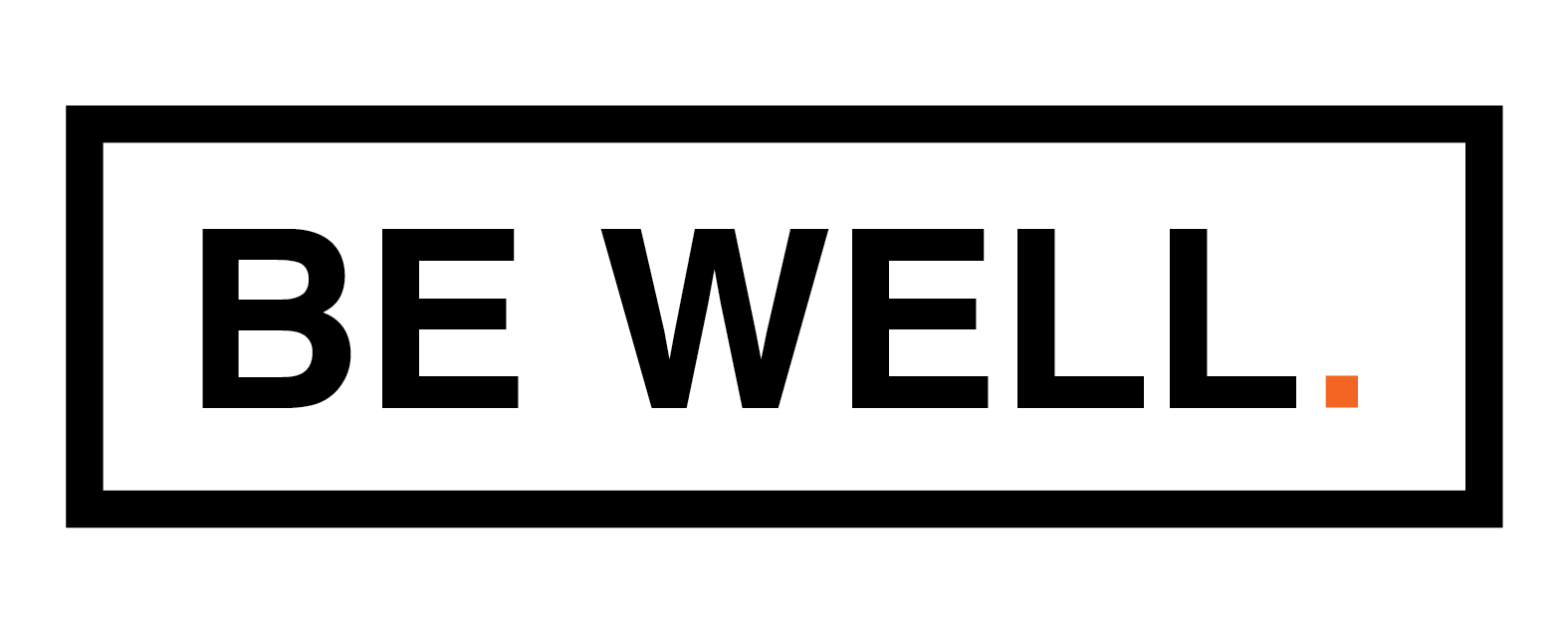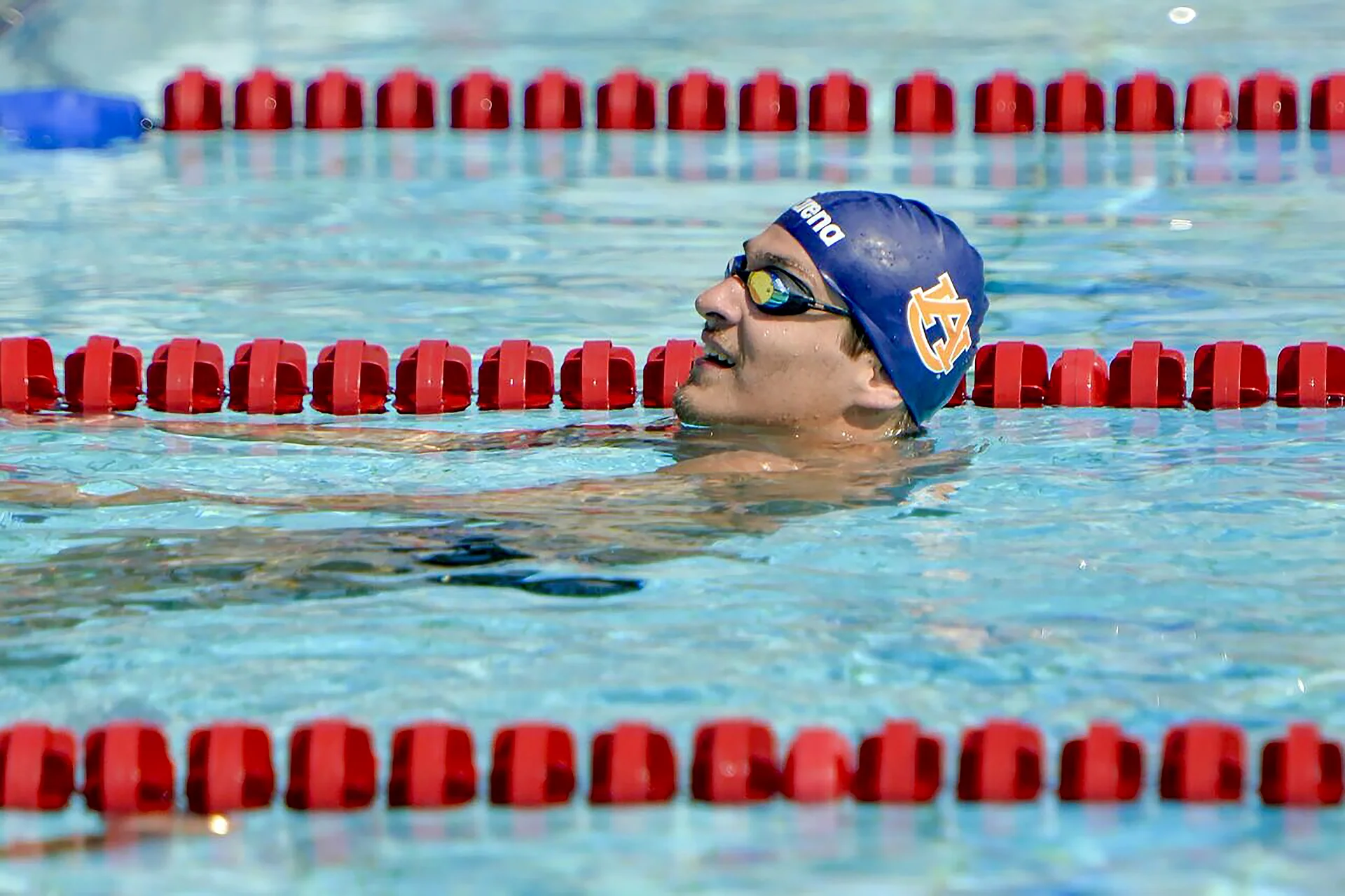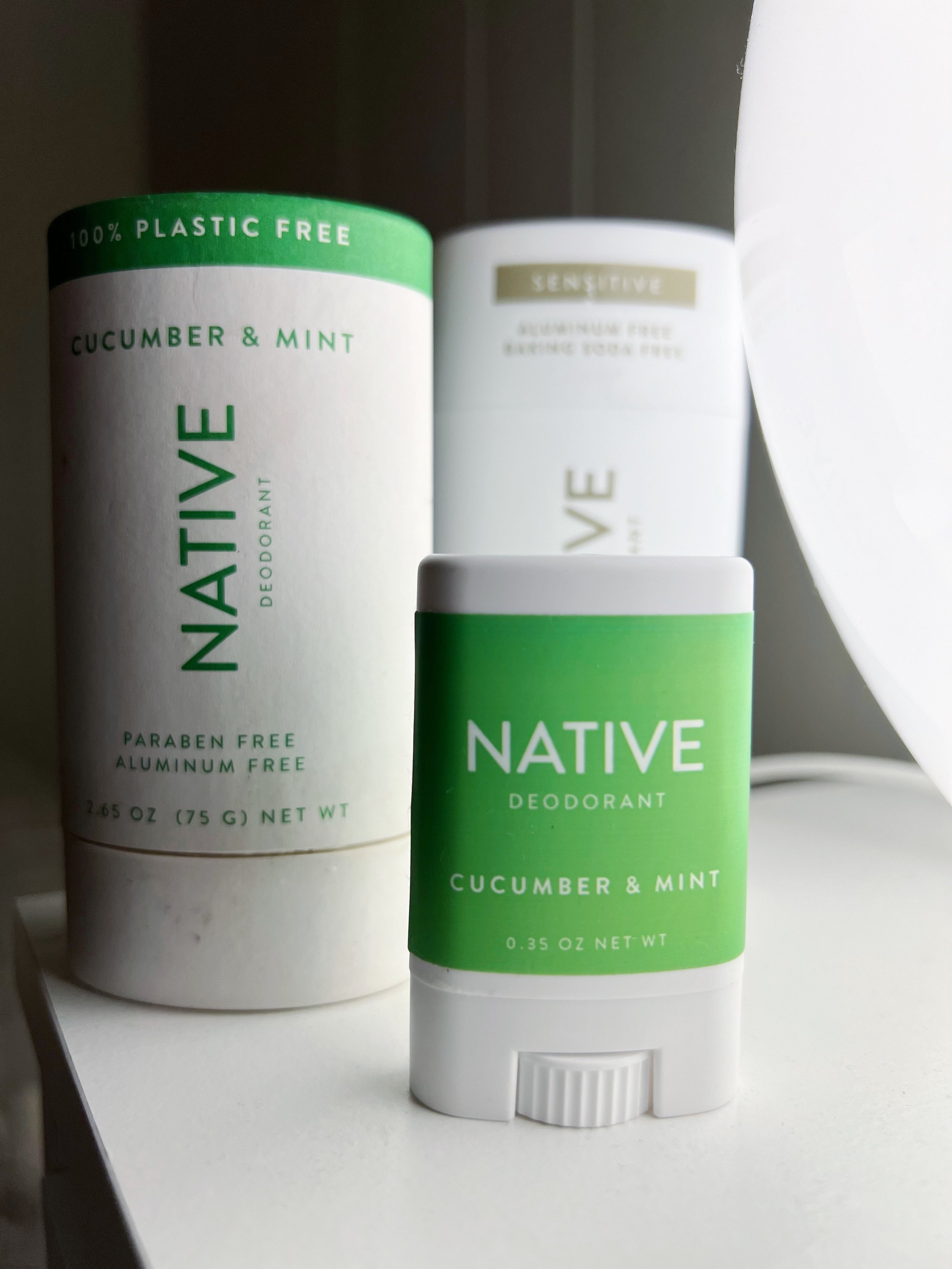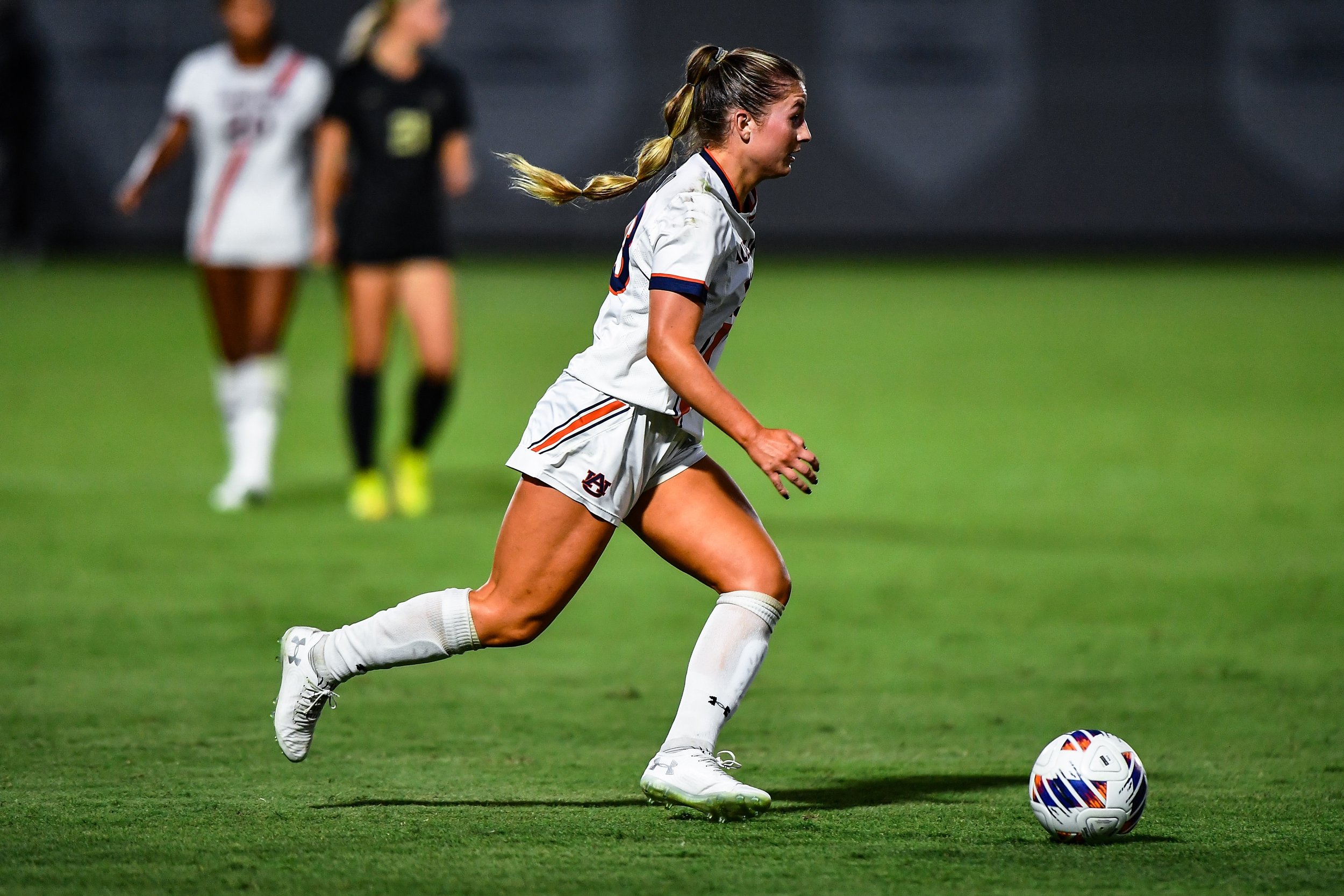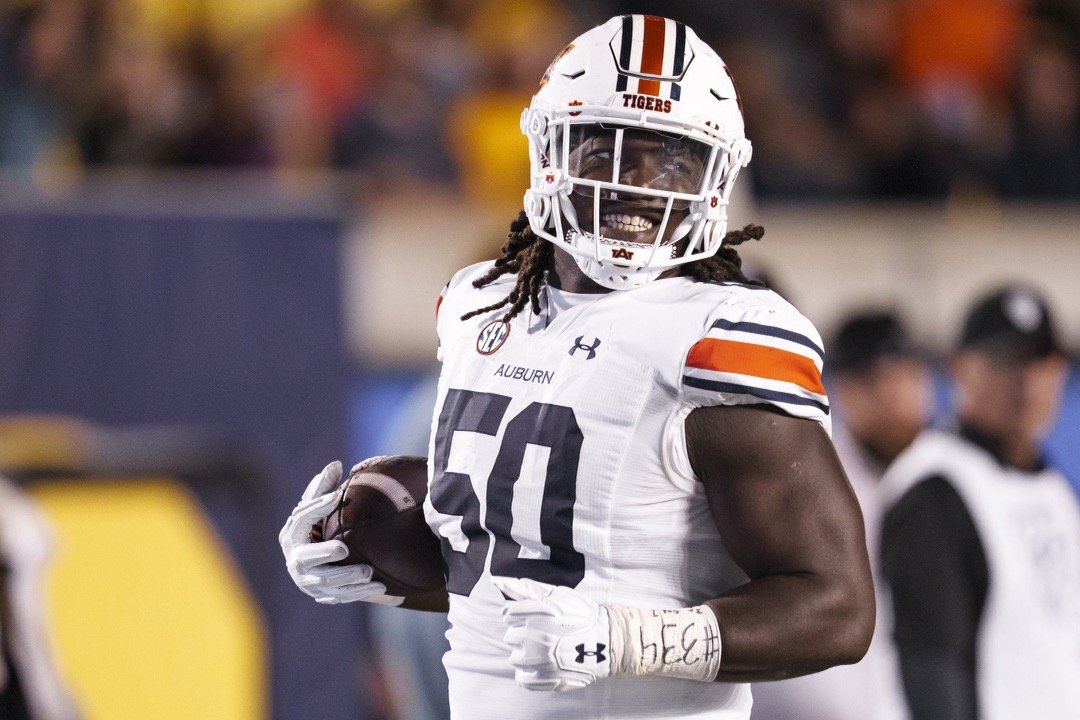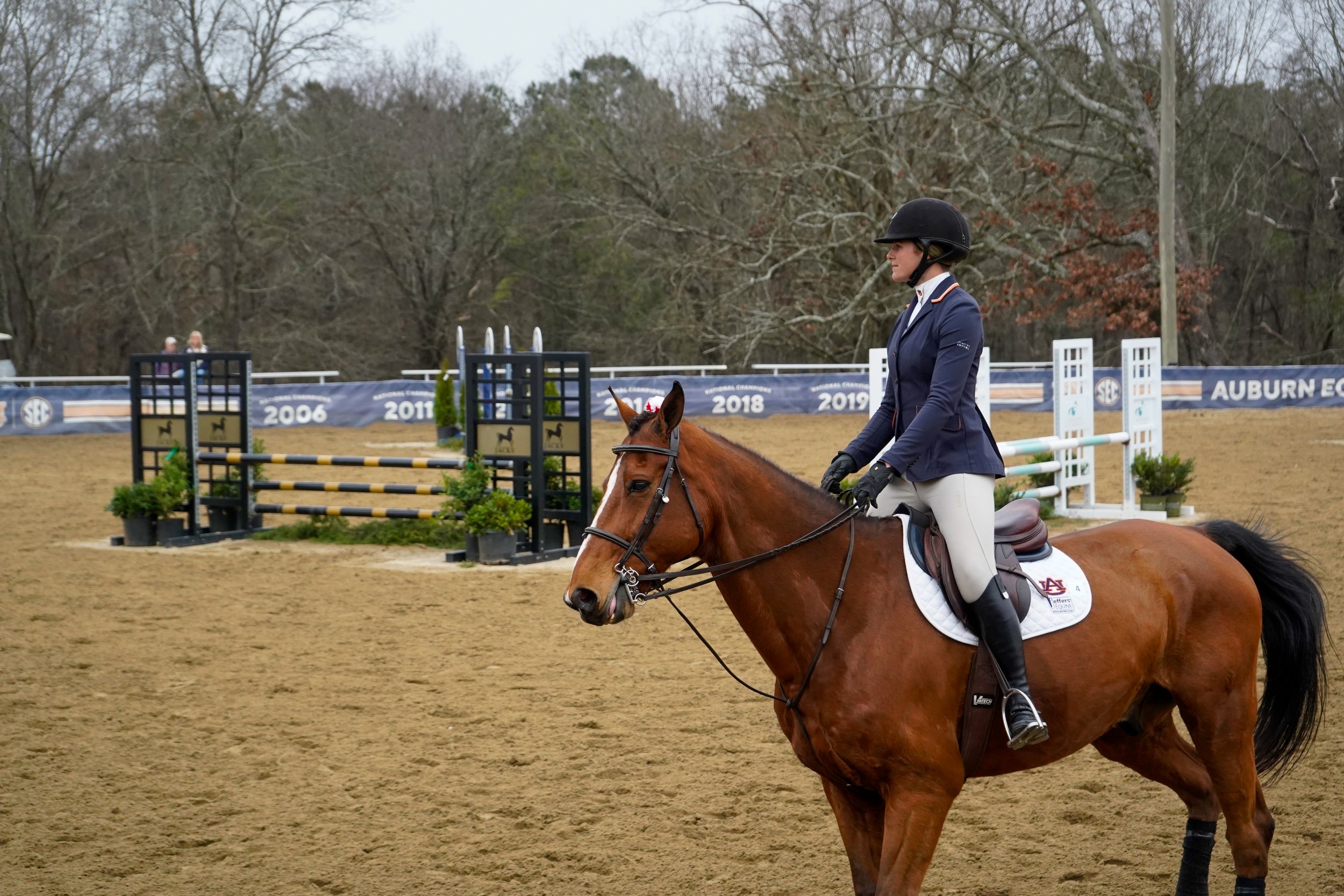21 Questions with Auburn Gymnasts Sophia Groth and Cassie Stevens
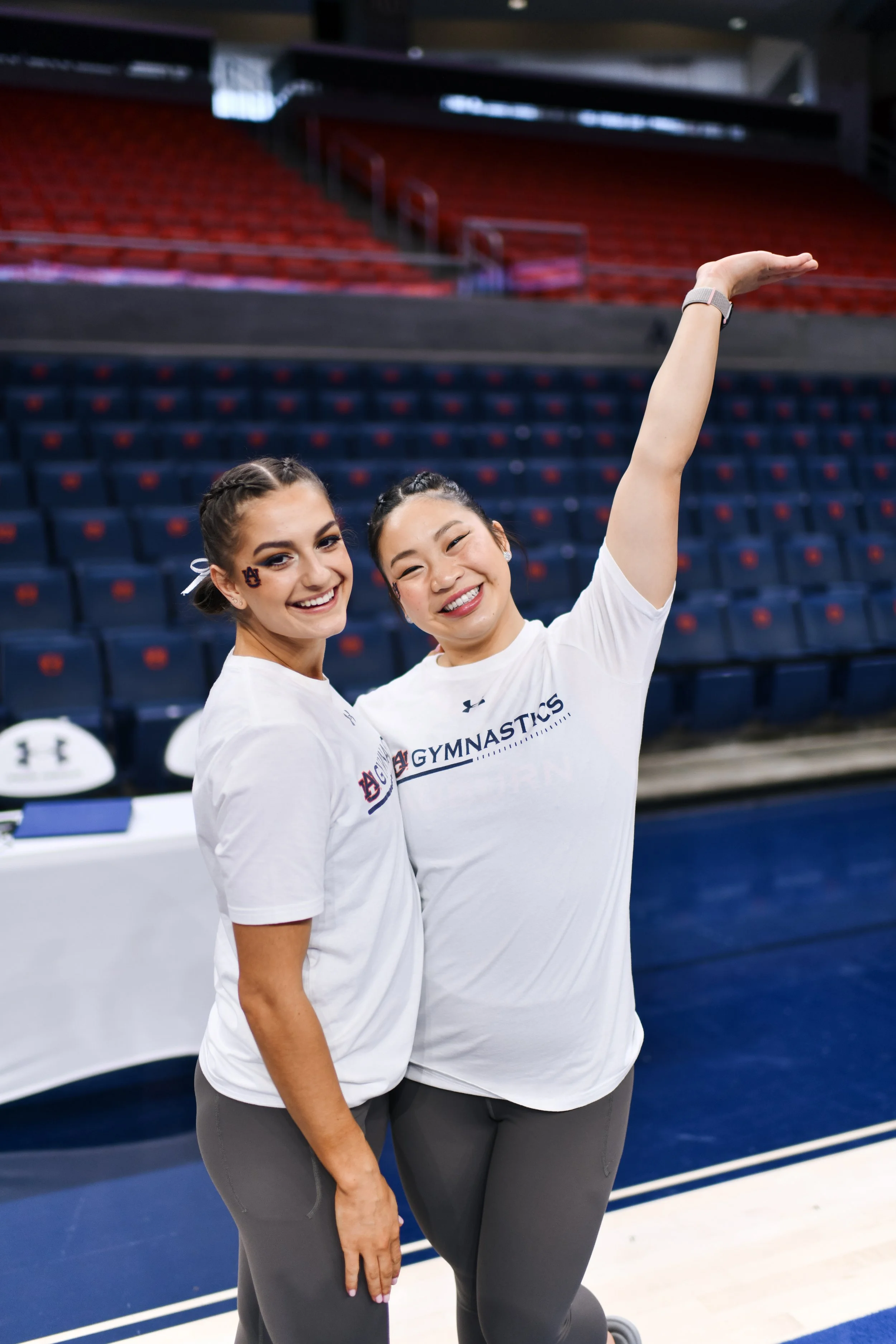
Cassie and Sophia represent the Auburn Gymnastics team as big-time competitors.
They have excelled in several areas. They both compete as All-around gymnasts and have a list of accomplishments. In this interview, they let us see the hearts behind the awards and accomplishments. From talking about their favorite food to what they’re learning about right now, this interview truly reveals what it is like to be an Auburn gymnast.
How long have you been doing gymnastics?
Sophia: I started when I was 5 ½ so almost 14 years.
Cassie: I started when I was 3 so math says that is 18 years.
2. What made you want to participate in college sports?
Sophia: I always wanted to participate in college gymnastics. I had the goal of doing elite, and when that didn't work out college became my main focus.
Cassie: It was never a “goal” when I was younger; growing up doing gymnastics was just the projected career path, so I just followed along that line.
Sophia: You just put in so much work, time, and sacrifice; college to me was what was going to make it all worth it.
3. What was the recruitment journey like for you?
Sophia: I started getting letters in 6th grade, so it was pretty intense because I was in elementary school (6th Grade was still considered an elementary school for our school system). I remember talking to the schools, and looking back at that I cringe because I was only 12 years old. So, I got recruited at a very young age, and then I committed between 8th and 9th grade, which was normal for that time. You [now] can't start talking to schools until your junior year.
That’s better because [then] I didn't know what college was, I didn't know what I wanted. I didn’t realize that college is a catalyst for the rest of your life. I would say that my recruitment process was intense, but I knew Auburn was the right place for me and I never wavered.
Cassie: I started getting letters in 8th grade because that was the first year I completed level 10. It was hard because a lot of my friends had a dream school, and I never did. I had to do a lot of digging and visited about 5 campuses at first. Some I knew I didn't want to go to, but I visited them anyway to have something to compare others to. It helped me learn what I liked and what I didn’t like. I eventually narrowed it down to Auburn and one other school, and I am very, very happy with my decision to come here.
4. What makes Auburn different?
Sophia: In clubs and in some college programs it feels more like a dictatorship between the coaching staff and the athletes. I really like the way Jeff coaches because it's a partnership. We get to work with him, and he takes our feedback, which definitely makes things a lot easier. We know ourselves better than anyone and he acknowledges that, so he is really willing to work with us. And the family environment. I know that’s a cliche about Auburn, but it’s true; it’s real. You don't know it until you’re in it. I’m a big people and community person so I couldn’t imagine myself anywhere else.
Cassie: I couldn't have said it better. It really is Jeff's coaching style that a lot of us gravitate towards. It’s open communication; we have a voice, and he listens to it. He takes what we say into account. At other schools you don't have a voice, you do what you’re told and how you're told to do it. So, we really like the environment we’re in. It’s a different vibe here. We have so much fun. We have the right mixture of serious and fun– we’re focused and playing– and I don't see that in any other schools. We do our best when we’re having fun.
Sophia: Yes, when you treat it too much like a business or a job, you have that added pressure. Having fun and putting more meaning into it takes the pressure away and you just get to enjoy it.
5. How many days do you practice?
Sophia: I start my day off by going to breakfast. I’ll have treatment for an hour and then I'll do two classes— or what is equivalent to two hours of schoolwork. After that, I'll go to the gym from noon to four, have dinner, and then do homework or involvements either on campus or at church events. But if I don't have anything I'll really take advantage of my free time because I don't have a lot.
Cassie: We have similar schedules: Breakfast, treatment, one or two classes in the morning, practice (includes practice, treatment, and rehab, recovery) dinner, and then studying at night. Wednesdays are our off days in the week.
Sophia: Except everything ends up getting placed on Wednesday.
Cassie: Yes, it's our day off from gymnastics physically, but it is the most mentally draining day. Every appointment, project, meeting, etc gets put on Wednesday so you're left running around from thing to thing.
6. How do you balance your involvements?
Sophia: Prioritizing self-care, and things that fill your tank, because you get drained very quickly.
Cassie: I try to balance it by getting everything done during the day.
7. What's on your mind when you're competing?
Sophia: I try to keep an eternal mindset, which takes the pressure off and allows me to be in the moment. I also soak up what is in front of me freely. Life is so much bigger than sports, and gymnastics. Gymnastics is going to end— like really soon. You still have so much life to live and so much left to look forward to. So, staying in the moment, but also knowing that it’s not the end all be all.
Cassie: Yeah, like your identity is not in your performance because that could eat you alive. Your worth is not going to come from a score; your worth as a human being is so much more than that. I hear stories about gymnasts who stop competing and lose their identity and self-worth. You have to get ready for that before it hits you in the face.
8. What gymnastics event do you struggle with the most?
Sophia: Vault in practice, because my ankles can't take a lot of numbers, so I only have a max of 3. If I don't get good turns, it’s hard to build confidence. But when the adrenaline kicks in at the meet, I’m good to go. Bars make me the most nervous competing because you have a lot to adjust to like the grips, the bars, and the lighting.
Cassie: In every other year, the vault has been the hardest for me. Having to overcome hurdles, struggles, and setbacks; having something and then losing it. Getting a skill back is one of the most rewarding feelings though.
9. Tell me about the tension between your team and your opponent.
Cassie: I would say there's not a huge tension because in gymnastics there's no defense. There's nothing we can do to make them worse, all we can do is do our best. The key is to not really even pay attention to them during a meet because it's uncontrollable. It’s best to focus on what you can control, which is you and your team.
Many of us have ex-teammates on other teams, so you want to see your friend do well. So, I don't think there's usually high tension, maybe a little more postseason just because you want to do the best you can in the rankings. Dual meets are just fun, and we don't hate each other, those are our friends really.
10. What does it look like to balance relationships? Are you able to have time for everything you want to do?
Sophia: Because there aren't many people who understand the commitment level and what it takes to be a college athlete, my bubble is small. I have a handful of really close friends and a lot of acquaintances, but I prioritize only a few friendships and pour into those rather than trying to juggle 20 semi-close friends. It’s just not possible with what we do in our schedule. So that’s how I balance relationships. I honestly think we have more time during the season than I do during pre-season.
Cassie: I second that. I would say you can make time for the things you need to make time for. Especially because we do have quite a few off days throughout the week like Saturdays, Sundays, and Wednesdays.
11. How does your involvement affect your well-being?
Sophia: A lot of the things that fill my schedule outside of the gym help to fill my tank. When I get in the gym, it drains me very fast. I also have some things that fill me up in the gym– like seeing my teammates. A lot of the church stuff I'm involved with and things outside of the gym need to recharge my battery because otherwise, I would be running on empty.
Cassie: It taught me how to prioritize my well-being. I now know the things that add to my well-being versus the things that extract from it. I wouldn't have known those things if I hadn't had such a tight schedule. Having to go through it, you learn what you like and what you don't like.
12. How do you stay positive?
Sophia: My faith. That’s my solid rock foundation, and I always go back to that because there are a lot of negative things in the world, in the gym, and in athletics overall. So having that to fall back on really helps. Also, we have fun, and we prioritize fun on our team, so that makes it a lot easier to enjoy and be positive knowing that I'm working towards something so much bigger than myself. It’s a team effort, not you competing only for yourself.
Cassie: I agree with all that and knowing you can lean on each other when you need to, and not even just when you need to. Our team is great because we don't just help people out when they’re below the water. As soon as you see someone struggling, multiple people want to go help them out.
13. What is your greatest strength/ weakness?
Sophia: This is a strength and weakness for me; I'm a very emotional human being. It helps me connect to people on a deeper level. I care a lot and can get emotional. [Gymnastics] means a lot to me so it'll affect me more than it may to others. I would say that’s a strength, but also a weakness.
Cassie: My biggest strength is probably my work ethic, which could also be a weakness because I will work myself to death if I do not get stopped. But I am willing to put in the work and won't back down from a challenge. My biggest weakness would probably be patience. Just because I will grind, and I like to see the results right away-- even though I know deep down you have to trust the process and you may not see the changes immediately.
14. What is the hardest aspect of being a collegiate gymnast?
Sophia: Probably time management. Nothing can prepare you for college until you’re in it. And then you’re in it. You’re thrown against a wall and hit by a train; it’s just a whirlwind where you have all these resources, but you don't even necessarily know how to use them. So, the adjustment of figuring out your priorities and allocating your time to what those priorities are is probably the biggest struggle at the beginning.
Cassie: I have good time management, so that wasn't really a problem for me. I feel like it's about mental toughness for me and resilience, because being a collegiate athlete you may have just failed an exam, but you still have to get up and be there for practice. Not every competition is going to go your way, but you need to be ready for the next one. It’s just a lot of highs and lows and you can't let the lows get to you-- you have to be able to bounce back. Especially freshman year. Most people go through a dip freshman year where they’re in the rough. But the ones who succeed are the ones who can get themselves out of that.
15. What motivates you to show up for your team to be the best you can be?
Sophia: I am competing for something so much greater than myself and I'm a part of a team. If I don't show up, it doesn't just affect me, it affects the whole team.
Cassie: Your team is relying on you, and any time you let them down it sucks, so that’s motivation right there. What motivates me to be my best probably comes from past successes, and it’s almost addicting. You want more and more and to be better and better. Putting in so much work, day in and day out, is really what makes it all worth it-- those bright spots and the work paying off and succeeding in what you’re trying to accomplish.
16. What is the biggest lesson you have learned from gymnastics?
Sophia: I would say patience. I have learned patience with myself and others. When I committed to Auburn, I was a very different gymnast than I am now. You must have patience with yourself. This goes back to the self-worth talk. They committed to you for the potential gymnast that they saw you becoming and not for who you were at that moment. You need patience when things don't go as planned, because you have to adjust and conquer. And obviously, patience with others because when you’re surrounded by 20+ other girls it gets to be a lot.
Cassie: One of the biggest things I've learned is leadership. Coming into college, I was the biggest follower, and I didn't have a desire to lead. I would just tell people “Oh yeah, I will just lead by example”. I feel like, as an upperclassman this year, I've been learning how to voice my opinions, encourage others, and overall take on a leadership role, especially towards the underclassman. I now desire to help others and share what I've overcome, and I didn't have that coming into college. I was very “me” focused. But now I think more about living beyond myself.
17. What is something you’re learning right now?
Sophia: I have had different experiences and things I needed to overcome, so I’m learning to give myself grace and continue to do my best. Preseason was very hard for me, and I felt like I couldn’t catch a break. I was sick all semester and had sinus surgery the day before Thanksgiving. Then, I fractured my rib at the previous meet before Christmas. I feel like I redefined what being a freshman looks like last year and couldn't have asked for a better season. I wanted to build on that this year, so I set the bar high.
Cassie: Bodily management. I've been lucky the past three years with only getting minor injuries, but this season has been one thing after another, and I’ve felt like I can't catch a break. I have learned you just need to believe in yourself; you’re ready despite anything and everything going on in your life.
18. If you could give other Auburn students wellness advice, what would it be?
Sophia: Celebrate the little victories. In college, you're constantly grinding. It’s beneficial to your future career, but it can be dark at times for some. There's a lot that changes and you're on your own for the first time. It's a lot to adjust to. So, celebrate the little victories.
Cassie: My advice is something I'm currently learning- it is worth taking time for yourself. I could work myself to death and do school 7 days a week for 24 hours. But taking a break and doing something that fills your tank is worth it. I like to get outside and take a walk in nature. It's worth it, even though it feels like you should be doing something more productive. There's nothing more productive than taking care of yourself.
19. Favorite moment as an Auburn gymnast?
Sophia: I had the best time at the Florida meet. We knew going into it that we had a chance if we put everything together. They were the number 2 team at the time, and I think we were number 7. It was going to be a good match up and we had home field advantage. All the cards were in our favor.
Cassie: The Florida meet. My proudest moment of that meet was probably my vault, just because that was the first time I competed for my 1 ½ in about a year and stuck it the first time. I got a 9.975 and was just in shock. That was the high. I put that moment at the top 2 under getting a skill named after me.
20. What is your favorite food currently?
Sophia: I like Taco Mama; I get a build-your-own salad with all the stuff, and it weighs like 10 pounds.
Cassie: I've been on a hummus kick, whether it's pita chips or veggies; I've just been loving it. And I've been loving protein balls.
21. What are your dreams/ goals in this life? In gymnastics?
Sophia: I want to do college coaching and maybe move into the administrative side.
Cassie: I wanted to be on the administrative side of NCAA sports because I want to stay involved. I love the sport so much. When I was thinking of potentially doing something else, I was like, “No I don't think I want to do that”. I may try to go full-on coach, but it doesn't matter what I do. The more I think about it, so many people have impacted my career and life, and I want to do that for someone else.
This concludes 21 Questions with Cassie and Sophia! I learned a great deal from interviewing these two. I hope this interview inspires you as it inspired me. Thank you, Cassie and Sophia! War Eagle!
Be well, Auburn!
Writer
Madi has grown up right next to Auburn in Opelika, Alabama for the majority of her life. Currently, in Auburn’s pre-interior design program, she hopes to eventually start her own interior design business after graduation. She is engaged to be married in May to the love of her life. Her day-to-day life is focused on wellness, engaging in creative projects, and being intentional with the people around her. She is a dreamer and hopes to write a book one day, impacting others throughout her life is at the top of her list.
